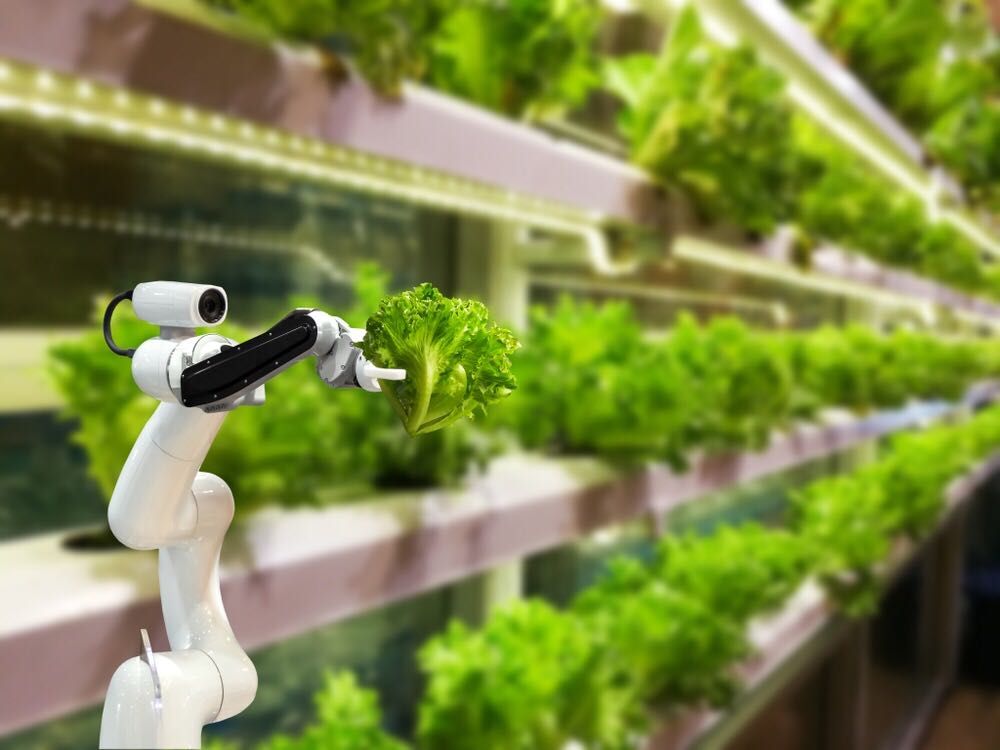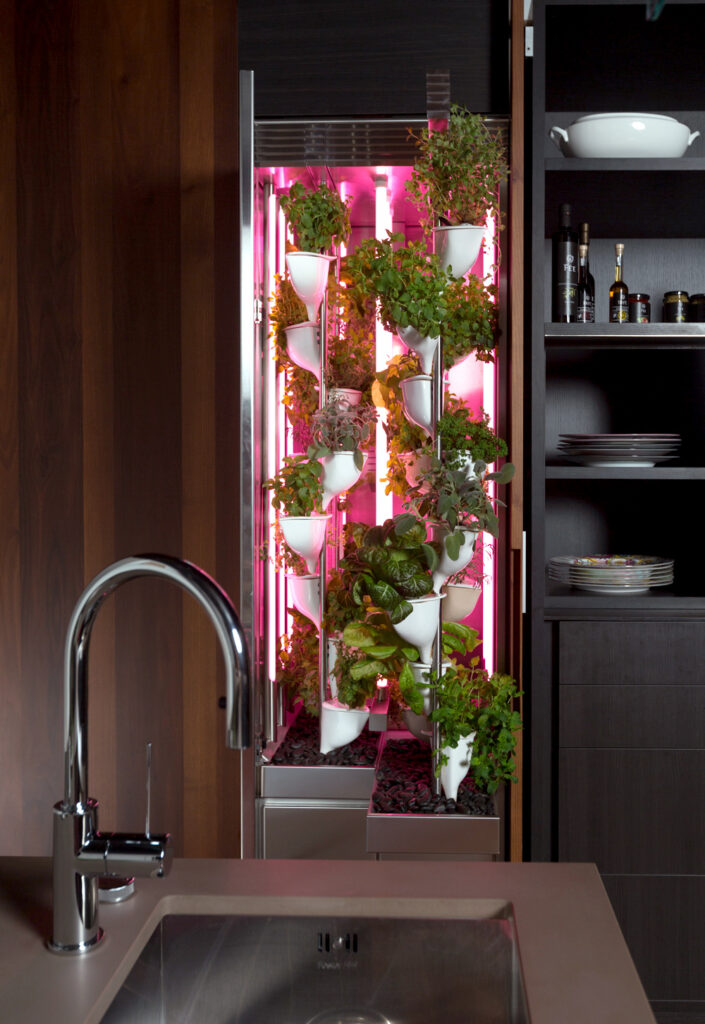The effects of climate change are already impacting the agricultural industry in the MENA region — temperatures, water shortages and droughts are increasing while crop yields are decreasing. It’s a challenging situation that will impact the region’s economy, food security and livelihood of MENA residents.
Deep tech startups with King Abdullah University of Science and Technology (KAUST) are rising to these challenges, creating agtech solutions that result in increased crop yields, reduced water usage and energy savings, among other benefits.
Greenhouses inside homes
Getting fresh produce in remote desert communities is difficult and expensive. Much of the produce must be transported across long distances. This is where automated, indoor greenhouses offer a practical and sustainable solution, allowing families to grow their own produce right in their homes while lowering the carbon footprint of desert agriculture.
Natufia, a KAUST spin-in startup, has two smart, hydroponic garden systems designed to create the ideal environment for each plant. By controlling the humidity, light and water levels, Natufia is able to provide an optimal growing environment for plants.
The Natufia Smart Gardens are composed of a water tank and seed nursery in the base, with a vertical tower that holds more than twenty plants at a time. The units come with seed pods that fit directly into the nursery at the base of the smart garden. This nursery is specifically designed to create the perfect climate for sprouting seeds. Once the seedlings are about 10 days old, they can be moved to the Grow Chamber, where they spend the rest of their time until harvest.
Sensors (and a Wi-Fi connection) make for a hands-off, self-managing system with ideal growing conditions for watering the plants, controlling the grow lights, and even managing the humidity. The Smart Garden is simple to use and requires little upkeep — an important factor when designing a product for busy families.
With Natufia’s automated garden technology, anyone can easily grow their own food and save money while reducing their environmental impact. The systems are already on the market, bringing a revolutionary new way to grow food in the home.
Related links:
- KAUST brings creators of world’s first fully automated kitchen garden to Saudi Arabia
- KAUST startups Natufia and Edama pair up to win NASA’s Deep Space Food Challenge
Portable water treatment systems
Wastewater management is an expanding field with the capability to address more than sanitation; treated water is a valuable resource that can support circular economy goals by repurposing water and reclaiming nutrients for diverse uses, particularly in regions like MENA where freshwater is hard to come by. Saudi Arabia has set a goal to reuse 70% of its water by the year 2030.
Approximately 40% of homes in the Kingdom aren’t connected to a centralized wastewater treatment plant. Untreated wastewater poses environmental risks, and its removal by truck increases traffic, expenses and energy. That’s why KAUST Professor of Environmental Science and Engineering Pascal Saikaly and his team developed a containerized wastewater treatment system that can treat water in one compact package. The portable system is designed to provide remote communities with reliable access to sanitation, and the treated water can be used for non-potable purposes like watering plants, flushing toilets, landscape irrigation and cleaning — applications that significantly save energy as well as operational costs.
A pilot plant in Rabigh, Saudi Arabia through a partnership with the Saudi National Water Company is yielding information about the system’s efficiency that can be used to upscale the project to other parts of the Kingdom.
Related links:
- Sciencetown podcast episode 25: Wastewater solutions
- KAUST-invented, mobile wastewater plant installed
Crops designed to thrive in salt (and heat)

Approximately 70% of the world’s freshwater is used in agriculture, and this amount is rapidly diminishing due to global climate change. The future availability of food in MENA is uncertain. The region has a pressing need for novel ways to increase crop yields in harsh environments. To ensure that future generations will be able to grow food, we need seeds that can handle hot, dry climates and to find better ways to use saltwater for farming.
Thanks to KAUST startup RedSea (formerly Red Sea Farms) we now have crops that can grow in salty soil. This alternate source of irrigation reduces the need for freshwater while also improving crop yields in arid environments. RedSea has an ambitious goal to use 90% saltwater in its greenhouses, reserving freshwater for the remaining 10%. The company’s goal is within reach.
Its non-GMO crops can be watered with saltwater, and the greenhouses are designed to be heat- and drought-resistant. This makes the RedSea system ideal for the MENA region and a reliable way to ensure that even the hottest, driest environments can still grow food.
For example, RedSea cherry tomatoes are not only salt-tolerant, they’re also grown in an engineered saltwater greenhouse with a special climate control and cooling system powered by saltwater and smart control systems. This system uses 80% to 95% less water and two to six times less energy than a regular greenhouse — a conservation choice for tough conditions where freshwater is scarce.
The breakthroughs happening at RedSea could have a profound impact on food security, not only in Saudi Arabia but also around the world. The saltwater crops are easy to grow, taste great, have more vitamin C and last longer on the shelf than the cherry tomatoes at your typical grocery store. That’s why RedSea wants to make use of saltwater for the food supply of the future.
Related links:
- Red Sea Farms attracts $18.5 million strategic raise as tech performance surpasses expectations
- Out of the lab: Red Sea Farms combats climate change in Saudi Arabia
- Red Sea Farms announces MOU with national flag carrier, SAUDIA
Creating a secure and sustainable future
The startups and teams at KAUST are solving the most pressing challenges in Saudi Arabia by investing in cutting-edge, sustainable solutions for protecting natural resources and improving the quality of life for communities in Saudi Arabia and around the world. Learn more about sustainable agtech innovations at KAUST.



